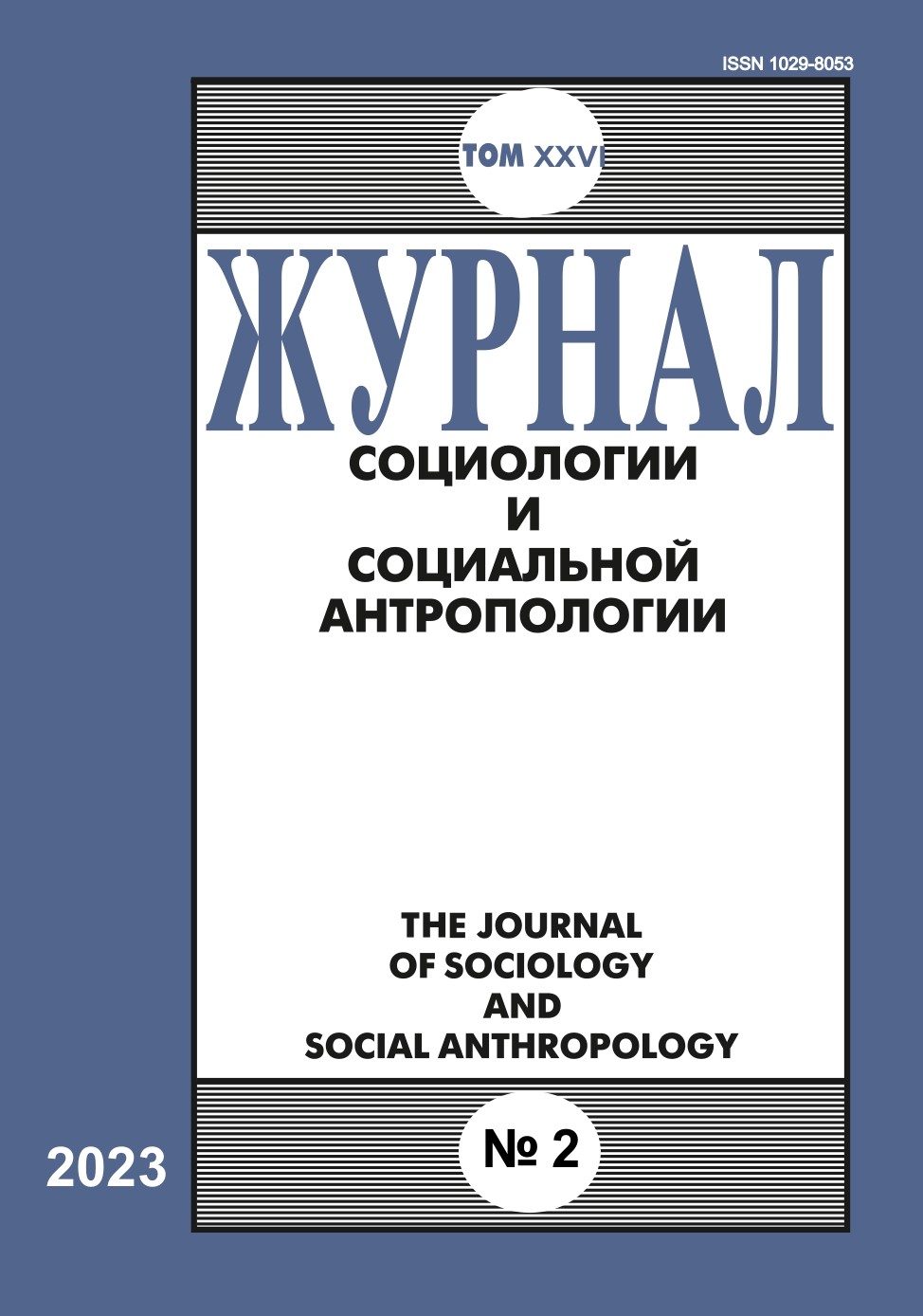The conceptual metaphor of old age
Abstract
The paper presents the author’s reflection on the projects of positive old age, rooted in the reflections of ancient philosophers and constructed by contemporary daily life. The author shows the dependence of positive old age projects’ content on the morphology of social life. The current context requires new content, new resources, the placement of new accents on the project of positive old age, which should be based on the analysis of deep structures, hidden realities of old age, and reflect its most important privileged regularities. The article reveals the substance of the concept of ‘conceptual metaphor of old age’ as the quintessence of a positive project of old age in specific socio-cultural environment, demonstrating a unique outline of human existence at this age stage. The conceptual metaphor of old age represents the ‘assemblage point’ of the old age phenomenon as a ‘constellation’ formation that has a certain modality and creates new coding rules. The discussion involves the basic, well-established concept of ‘old age’ in Russian discourse, explains its connection with the formula of stagnation, completeness, finale, with the strategy of ousting old age from the sphere of access to prestigious values, power and other resources, with the strategy of explaining negative phenomena in the life of an elderly person, or directly related to one’s health, old age the conceptual metaphor is regarded both as a research tool and a means of expressing positive and negative connotations in various discourses, a means of manipulative influence. The conclusion is made about the relativity of the conceptual metaphor. In this viewpoint, attention is drawn to the fact that a conceptual metaphor can remain unnoticed, or it can be lobbied by various institutions. At the same time, it is important to observe how it enters the spectrum of possible experience of one’s own old age, the spectrum of possible attitude to old age. The critical analysis of a number of modern conceptual metaphors of old age is carried out. The author substantiates the significance of the conceptual metaphor ‘competent old age’, which fixes its phenomenon in the modern Russian context. It is emphasized that this conceptual metaphor can serve as an epistemological tool for building and implementing a positive old age project at this time and in these conditions, as it leads to a new understanding of old age and a new understanding of relationships with older people.
References
Бабышев В.Ю. (2021) Влияние межпоколенных трансфертов на рождаемость. Народонаселение, 24(1): 77–87.
Бадью А. (2018) Истинная жизнь. М.: РИПОЛ классик.
Бауман З., Донскис Л. (2019) Моральная слепота: утрата чувствительности в эпоху текучей современности. Пер. с англ. А.И. Самариной; науч. ред. Т.Н. Рыков. СПб.: Издательство Ивана Лимбаха.
Блинова И.С. (2009) Концепт «старость» в русской и немецкой лингвокультурах: автореф. дис. … канд. филол. н. Волгоград.
Галкин К.А. (2021) Ограниченное пространство: город в период пандемии в представлениях пожилых людей. Интеракция. Интервью. Интерпретация, 13(2): 27–40.
Евсеева Я.В. (2020) Успешное старение: история и современность. Евсеева Я.В., Ядова М.А. (ред.) Успешное старение: Социологические и социогеронтологические концепции. М.: РАН ИНИОН: 15–29.
Елютина М.Э., Колязина Л.В. (2019) Пожилые люди: практики чтения. Известия Саратовского университета. Новая серия. Серия «Социология. Политология», 19(2): 152–156.
Ершова Р.В. (2019) Цифровое поколение: между мифом и реальностью. Философские науки, 62(2): 96–108.
Крючкова Н.В. (2003) Концепты возраста (на материале русского и французского языков: автореф. дис. … канд. филол. н. Саратов.
Лишаев С.А. (2019) Старость, мудрость, философия. Вестник Русской христианской гуманитарной академии, 20(1): 12–25.
Михель Д.В. (2018) Биполярное расстройство: эпидемия или следствие медикализации общества? Вестник СПбГУ. Социология, 11(1): 51–65.
Руми Джалаладдин (2012) Дорога превращений: суфийские притчи. М.: Теревинф.
Синявская О.В. Гудкова Т., Ермолина А.А., Кареева Д.Е., Любушина Е.С., Миронова А.А., Селезнева Е.В. (2018) Старение как социально-экономический феномен. Волонтер, 27(3): 7–15.
Синявская О.В. Червякова А.А. (2022) Активное долголетие в России в условиях экономической стагнации: что показывает динамика индекса активного долголетия? Мониторинг общественного мнения: экономические и социальные перемены, 5: 94–121.
Честертон Г.К. (1984) Писатель в газете. М.: Прогресс.
Шахова И.А. (2022) Трикстеры как фактор социальной трансформации общества. Общество: социология, психология, педагогика, 8: 62–67.
Юдин И.Б., Полякова В.В., Фурсов К.С. (2020) Практики самообразования среди взрослого населения России. Мониторинг экономики образования. Национальный исследовательский университет «Высшая школа экономики», 39: 1–8.

